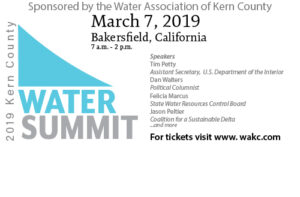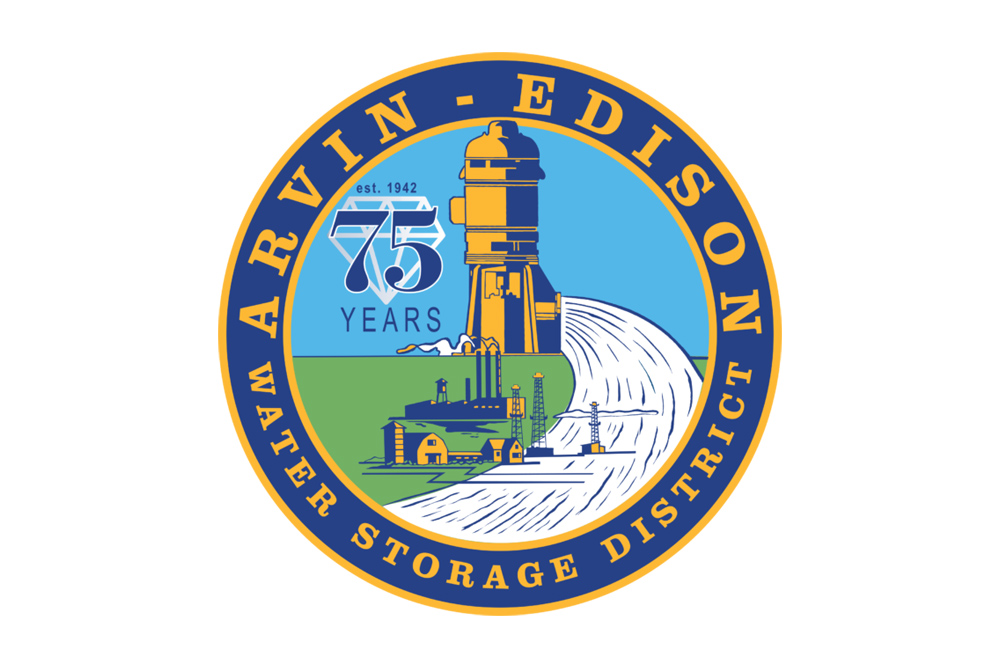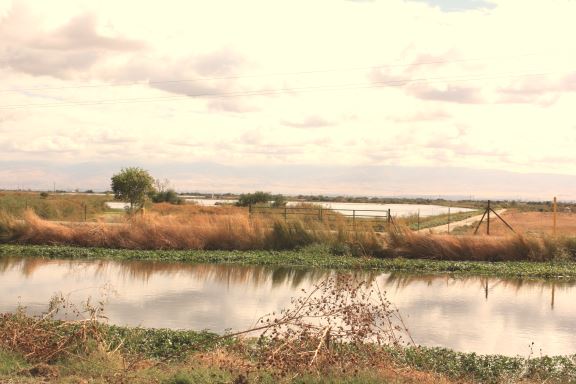By Jennifer Pierre and Tom McCarthy
The Central Valley, and Kern County specifically, is a cornerstone of California’s thriving economy. One of the top oil and agriculture-producing counties in the nation, Kern’s success depends on reliable, affordable water supplies. The State Water Project (SWP) — an engineering feat that relies on the Sacramento San-Joaquin Delta (Delta) and delivers high-quality water to 27 million homes and  businesses and irrigates 750,000 acres of farmland annually — supplements Kern River supplies, provides water for groundwater recharge and banking, and helps to mitigate the impacts of recurring droughts and groundwater overdraft in Kern County.
businesses and irrigates 750,000 acres of farmland annually — supplements Kern River supplies, provides water for groundwater recharge and banking, and helps to mitigate the impacts of recurring droughts and groundwater overdraft in Kern County.
If the State Water Project service area were its own nation, it would rank as the world’s eighth largest economy. Yet, for decades, flows to and from the Delta have been rigidly managed based on outdated science and with limited success. Important species have continued to decline and water supply reliability has not improved.
As part of its requirement to update the Bay-Delta Water Quality Control Plan (Bay-Delta Plan) — the plan governing all the rivers in the Sacramento and San Joaquin River watersheds — the State Water Board staff have proposed an approach that would reduce SWP deliveries by 28% on average and result in a reduction of Delta water deliveries to the San Joaquin Valley by over 700,00 acre-feet of water in dry years. (One acre-foot of water is enough water for three California families for a year). A reduction of this magnitude would severely stunt Kern County’s ability to manage groundwater basins, mitigate drought impacts and support the regional economy. This flow-only approach creates significant impacts on water supply, hydropower and economies throughout California.
watersheds — the State Water Board staff have proposed an approach that would reduce SWP deliveries by 28% on average and result in a reduction of Delta water deliveries to the San Joaquin Valley by over 700,00 acre-feet of water in dry years. (One acre-foot of water is enough water for three California families for a year). A reduction of this magnitude would severely stunt Kern County’s ability to manage groundwater basins, mitigate drought impacts and support the regional economy. This flow-only approach creates significant impacts on water supply, hydropower and economies throughout California.
To change course and offer a different approach while still meeting the objectives of the Bay/Delta Plan update, local water managers have worked with state and federal leaders to develop a new proposal, the Agreements to Support Healthy Rivers & Landscapes (Voluntary Agreements; Agreements). The collaborative, voluntary settlement Agreements are meant to improve both the predictability of water deliveries across California and environmental conditions throughout the Delta watershed — more quickly and holistically than traditional, litigious regulatory approaches have allowed.
Supported by dozens of public water agencies from Red Bluff to the Mexico border, including the Kern County Water Agency, the Agreements represent an opportunity to transform California’s water management. They would secure water supplies by creating certainty in environmental water costs and other obligations over the next decade or more while also implementing habitat and flow actions to improve ecosystem functions. Additionally, the Agreements would leverage more than $2.5 billion in funding to support water purchases, crop idling, a robust science program, construction of new habitat and dedicated resources to monitor and ensure performance.
Many of the environmental restoration projects identified in the Agreements have already begun or been completed as part of early implementation actions. An inclusive governance program, including public water agencies and state and federal resource agencies, will also welcome the participation of Tribes and environmental organizations to support research and adaptive management of flow and non-flow measures for native fish.
The State Water Board is currently considering the Agreements and, if approved, they will become the new Bay-Delta Plan — implemented through binding agreements between the State Water Board, state and federal agencies, and participating water agencies to direct water, funding, and habitat restoration efforts to improve the health of the Delta ecosystem and its tributaries while protecting other critical beneficial uses of water, including supplies to Kern County Water Agency.
Instead of ongoing fighting over our limited water resources and significantly reducing SWP deliveries, we should do more of what we know works — using the best available science to manage water in real time and implement floodplain and other restoration projects to support the needs of communities, businesses, farms and fish. We have an unprecedented opportunity to invest in modern approaches that allow for flexibility and adaptive measures that protect species and the critical water supplies that keep Kern County thriving.
Jennifer Pierre is the General Manager of the State Water Contractors and Tom McCarthy is the General Manager of the Kern County Water Agency.
DISCLAIMER OF RESPONSIBILITY; Waterwrights.net strives to provide its clients with the most complete, up-to-date, and accurate information available. Nevertheless, Waterwrights.net does not serve as a guarantor of the accuracy or completeness of the information provided, and specifically disclaims any and all responsibility for information that is not accurate, up-to-date, or complete. Waterwrights.net’s clients therefore rely on the accuracy, completeness and timeliness of information from Waterwrights.net entirely at their own risk. The opinions expressed in this
information available. Nevertheless, Waterwrights.net does not serve as a guarantor of the accuracy or completeness of the information provided, and specifically disclaims any and all responsibility for information that is not accurate, up-to-date, or complete. Waterwrights.net’s clients therefore rely on the accuracy, completeness and timeliness of information from Waterwrights.net entirely at their own risk. The opinions expressed in this report are those of the author and do not represent any advertisers or third parties.
report are those of the author and do not represent any advertisers or third parties.
ALL RIGHTS RESERVED. Copyright 2024 by WaterWrights.net
































